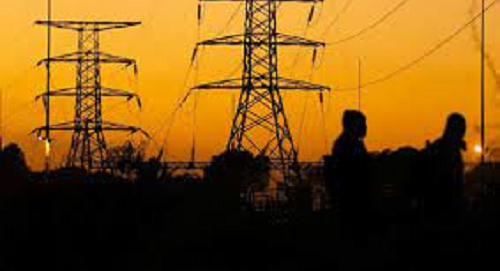NIGERIA’s power generation companies (GenCos) have raised the alarm over a worsening liquidity crisis, warning that the national power grid is at risk of collapse due to over ₦5.2 trillion in unpaid debts.
In a statement released on Monday made available to News Point Nigeria, the Chief Executive Officer of the Association of Power Generation Companies (APGC), Dr Joy Ogaji, said GenCos can no longer rely on “patriotism” to keep power plants running.
“We have shown patriotism for years, but that alone cannot keep the turbines running. The lights will soon go out if urgent action is not taken,” Ogaji warned.
Ogaji revealed that the power generation sector is currently owed:
₦1.9 trillion in legacy debts dating back to 2015,
₦2 trillion in unpaid 2024 invoices, and
₦1.2 trillion for electricity supplied in the first half of 2025 bringing the total outstanding debt to over ₦5.2 trillion.
She said there is no viable repayment plan in place, and the 2025 federal budget of ₦900 billion for power does not cover even a third of what is owed and worse, is not yet cash-backed as of July 21.
“This isn’t a subsidy regime. This is debt accumulation,” she said. “Electricity is being consumed in full, but payments are not being made accordingly.”
Ogaji added that the GenCos have had to seek alternative funding outside the electricity market to pay for gas and other critical operations, describing the situation as unsustainable.
“Expanding capacity in this market only means more financial exposure, maintenance risk, and unreturned investment. We are close to a tipping point,” she said.
The APGC also criticized the planned tariff reduction by the Nigerian Electricity Regulatory Commission (NERC) from ₦209 to ₦160/kWh for Band A customers starting August 1, warning that it rests on flawed subsidy assumptions and would further weaken the sector’s financial viability.
Reacting to the concerns, Minister of Power, Adebayo Adelabu, through his media aide Bolaji Tunji, acknowledged the grave financial strain and said the government was working to defray part of the debt.
“The Minister has raised the issue with the relevant authorities. There’s a process in motion to settle some of the outstanding debt,” Tunji said in an interview Monday.
However, he gave no clear timeline for payment.
This isn’t the first time GenCos have sounded the alarm.
In May, the Federal Government reportedly met with the operators and promised immediate payments, including a direct meeting with President Bola Tinubu.
Tunji had said at the time that a “substantial portion” would be paid immediately and the balance via financial instruments like promissory notes within six months.
More than two months later, Ogaji said none of those promises have materialized.
Industry experts warn that if GenCos carry through with threats to reduce output or shut down operations, Nigeria may face nationwide blackouts.
“This is more than a financial issue. It’s a national emergency. Without urgent intervention, the system could collapse,” one sector analyst said.







